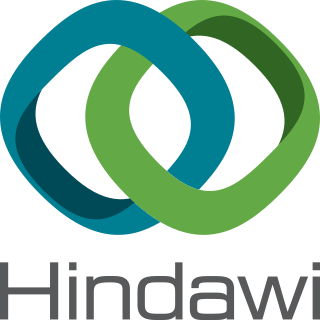Related Research Articles

An academic journal or scholarly journal is a periodical publication in which scholarship relating to a particular academic discipline is published. Academic journals serve as permanent and transparent forums for the presentation, scrutiny, and discussion of research. They nearly universally require peer review or other scrutiny from contemporaries competent and established in their respective fields. Content typically takes the form of articles presenting original research, review articles, or book reviews. The purpose of an academic journal, according to Henry Oldenburg, is to give researchers a venue to "impart their knowledge to one another, and contribute what they can to the Grand design of improving natural knowledge, and perfecting all Philosophical Arts, and Sciences."

Open access (OA) is a set of principles and a range of practices through which research outputs are distributed online, free of access charges or other barriers. Under some models of open access publishing, barriers to copying or reuse are also reduced or removed by applying an open license for copyright.

Elsevier is a Dutch academic publishing company specializing in scientific, technical, and medical content. Its products include journals such as The Lancet, Cell, the ScienceDirect collection of electronic journals, Trends, the Current Opinion series, the online citation database Scopus, the SciVal tool for measuring research performance, the ClinicalKey search engine for clinicians, and the ClinicalPath evidence-based cancer care service. Elsevier's products and services include digital tools for data management, instruction, research analytics, and assessment.

Hindawi is a publisher of peer-reviewed, open access, scientific journals currently active in scientific, technical, and medical (STM) literature. It was founded in 1997 in Cairo, Egypt, but purchased in 2021 by John Wiley & Sons, a publishing company based in the United States. The company has its headquarters in London, an office in Cairo, and a virtual office address in New York City.

Edward Elgar Publishing is a global publisher of academic books, journals and online resources in the social sciences and law. The company also publishes a social science and law blog with regular contributions from leading scholars.
MDPI is a publisher of open access scientific journals. Founded by Shu-Kun Lin as a chemical sample archive, it now publishes over 390 peer-reviewed, open access journals. MDPI is among the largest publishers in the world in terms of journal article output, and is the largest publisher of open access articles.
Pulsus Group is a health informatics and digital marketing company and publisher of scientific, technical, and medical literature. It was formed in 1984, primarily to publish peer-reviewed medical journals. As of 2016, Pulsus published 98 hybrid and full open-access journals, 15 of which had been adopted as the official publications of related medical societies. Pulsus Group also conducts conferences in association with scientific societies.
Allied Academies is a reportedly fraudulent corporation chartered under the laws of North Carolina. Its postal address is in London, United Kingdom. It presents itself as an association of scholars, with supporting and encouraging research and the sharing and exchange of knowledge as its stated aims. The organization consists of 30 affiliate academies, which provide awards to academics and publish academic journals both online and in hard copy for members. Since 2015 the organization has been listed on Jeffrey Beall's list of "potential, possible, or probable predatory scholarly open-access publishers". It is in a partnership with OMICS Publishing Group which uses its website and logo. In 2018, OMICS owner Srinubabu Gedela declared that he had informed the Nevada court that Allied Academies was a subsidiary of OMICS International. During a conference in 2018, they falsely listed a prominent chemist among its organizing committee who had not agreed to this and was not affiliated with Allied Academies.

Bentham Science Publishers is a company that publishes scientific, technical, and medical journals and e-books. It publishes over 120 subscription-based academic journals and around 40 open access journals.
Scientific Research Publishing (SCIRP) is a predatory academic publisher of open-access electronic journals, conference proceedings, and scientific anthologies that are considered to be of questionable quality. As of December 2014, it offered 244 English-language open-access journals in the areas of science, technology, business, economy, and medicine.
Experimental & Clinical Cardiology is an open access medical journal covering cardiology and heart health-related topics, including hypertension, myocardial ischemia, diabetes, and other cardiovascular diseases. It is published by Cardiology Academic Press, which is on Jeffrey Beall's list of predatory publishers. According to the Journal Citation Reports, the journal has a 2013 impact factor of 0.758.

OMICS Publishing Group is a predatory publisher of open access academic journals. It started publishing its first journal in 2008. By 2015, it claimed over 700 journals, although about half of them were defunct. Its subsidiaries and brands include Allied Academies, Conference Series LLC LTD, EuroSciCon LTD, Hilaris Publishing, iMedPub LTD, Longdom Publishing SL, Meetings International, Pulsus Group, Research & Reviews, SciTechnol, Trade Science Inc.
Frontiers Media SA is a publisher of peer-reviewed, open access, scientific journals currently active in science, technology, and medicine. It was founded in 2007 by Kamila and Henry Markram. Frontiers is based in Lausanne, Switzerland, with other offices in London, Madrid, Seattle and Brussels. In 2022, Frontiers employed more than 1,400 people, across 14 countries. All Frontiers journals are published under a Creative Commons Attribution License.

Predatory publishing, also write-only publishing or deceptive publishing, is an exploitative academic publishing business model that involves charging publication fees to authors only superficially checking articles for quality and legitimacy, and without providing editorial and publishing services that legitimate academic journals provide, whether open access or not. Namely, the rejection rate of predatory journals is low, but seldom is zero. The phenomenon of "open access predatory publishers" was first noticed by Jeffrey Beall, when he described "publishers that are ready to publish any article for payment". However, criticisms about the label "predatory" have been raised. A lengthy review of the controversy started by Beall appears in The Journal of Academic Librarianship.
Beall's List was a prominent list of predatory open-access publishers that was maintained by University of Colorado librarian Jeffrey Beall on his blog Scholarly Open Access. The list aimed to document open-access publishers who did not perform real peer review, effectively publishing any article as long as the authors pay the open access fee. Originally started as a personal endeavor in 2008, Beall's List became a widely followed piece of work by the mid-2010s.

Jeffrey Beall is an American librarian and library scientist, who drew attention to "predatory open access publishing", a term he coined, and created Beall's list, a list of potentially predatory open-access publishers. He is a critic of the open access publishing movement and particularly how predatory publishers use the open access concept, and is known for his blog Scholarly Open Access. He has also written on this topic in The Charleston Advisor, in Nature, in Learned Publishing, and elsewhere.
Predatory conferences or predatory meetings are meetings set up to appear as legitimate scientific conferences but which are exploitative as they do not provide proper editorial control over presentations, and advertising can include claims of involvement of prominent academics who are, in fact, uninvolved. They are an expansion of the predatory publishing business model, which involves the creation of academic publications built around an exploitative business model that generally involves charging publication fees to authors without providing the editorial and publishing services associated with legitimate journals.
Science Publishing Group (SPG) is an open-access publisher of academic journals and books established in 2012. It has an address in New York City but is actually based in Pakistan. The company has been criticized for predatory publishing practices. As of 2019, it publishes 430 journals in various fields.
Juniper Publishers is a publisher of various academic journals. It has a postal address in Irvine, California, USA but also has employees in Hyderabad, India. Juniper Publishers has been included on Beall's List of potential predatory open-access publishers, and has faced other criticisms of its publishing practices.
Herald Scholarly Open Access is a publisher of various academic journals. It has a postal address in Herndon, Virginia, United States, but is actually based in Hyderabad, India. Herald Scholarly Open Access has been included on Beall's List of potential predatory open-access publishers, and has faced other criticisms of its publishing practices.
References
- 1 2 3 Pettit, Emma (August 1, 2018). "These Professors Don't Work for a Predatory Publisher. It Keeps Claiming They Do". The Chronicle of Higher Education. Retrieved February 25, 2021.
- ↑ "Aims and Scope". International Journal of Humanities and Social Science. Retrieved February 25, 2021.
- 1 2 Iskandrian, Ami E. (2018). "Predatory publications and their abuse of the open access model". Journal of Nuclear Cardiology. 25 (6): 1906–1907. doi: 10.1007/s12350-018-1461-y . PMID 30378000. S2CID 53109289.
- ↑ "Editorial Board". International Journal of Humanities and Social Science. Retrieved February 25, 2021.
- ↑ "Potential predatory scholarly open‑access publishers" . Retrieved May 3, 2021.
- ↑ "About CPI". Center for Promoting Ideas. Retrieved February 25, 2021.